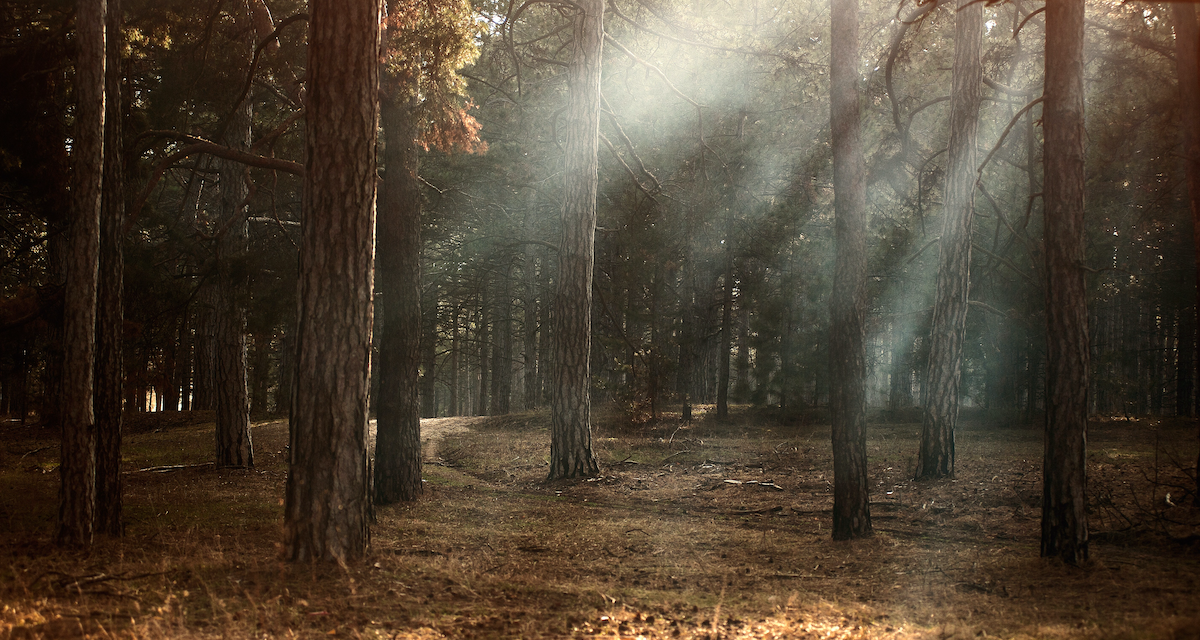The Death of Expectancy: A Letter to Our Young Adults
Dear ones,
There’s been something on my mind lately that I can’t seem to shake. I’ve heard from you, my own sweet high school senior, as well as from you, my college students in our Zoom therapy sessions, about being fearful to hope for anything good anymore. Through tears you tell me about all the things you have looked forward to that are now gone—goodbyes stolen and endings evaporated as if they were never meant to exist. I’m hearing you prepare and steady yourself for more loss to come, declaring that if you don’t get excited about “the thing” to come, then you can’t be disappointed when it doesn’t. In real time I’m bearing witness to a loss of fervor and invincibility that rightfully belongs to you, our youth. We need your altruism. We rely on your indomitable sense of purpose and your eyes that see the world as theirs to change.
You aren’t built for this. Or at least, you weren’t before now. Without warning or permission, you have become the transitional generation between two worlds: a world before pandemic and a world after. The children born into this new world will naturally be better prepared for what is occurring right now than you are because they will have never known your world. Their parents will unwittingly raise them with a particular, watchful reservation that will be passed on, as all things are. But you, you are the generation that will have no choice but to clumsily straddle the two worlds, having known them both intimately. You will totter between this old world and a new world you are still learning. This new reality is being burned into your still-developing brain in ways that adults over 26 will not experience. You can’t help it. The fear, the loss, the anticipatory anxiety and the sense of foreboding doom will want to imprint new neural pathways, just as drugs and alcohol on a growing brain want to hardwire you for addiction. But this is not your full story.
Your grief is so real to me. As a mom and therapist, it has always been the case that the deep grief of someone young is the saddest kind. It seems misplaced, oversized like a dad’s sweater on a small child. It feels unfair and cruel as if someone has strapped to the back of a child a bag far too weighty for their small frame to bear. More than ever I find myself sitting with you in your grief, knowing I have little to offer except my presence. I feel un-useful, at times wishing for the oft talked about “magic wand” to mitigate the wounds that keep coming. The most wanted and looked-forward-to things in your lives just keep getting cancelled. Parents have lost jobs and your homes have become increasingly complicated with financial hardship, addiction, anger and conflict. Anxiety about the health of loved ones and fear about your own life being cut short are part of your daily routine. The plans you have relied on to keep you grounded and help you imagine a future have been dramatically paused or removed entirely. Reports continue to change, systems are upended, structures dissolved, isolation mandated and dates of “resuming normalcy” seem to continue to inch further and further in front of you, just out of your grasp. Life, canceled.
After the dust has settled and the tragic losses of all kinds have been quantified, I fear there may be another loss that we couldn’t have predicted: one that could impact the future landscape of our world as much as the traumatic loss of life and economic devastation that will be seen across the globe for years to come. This loss would be a quiet one that could occur without detection, an almost imperceptible death among you, our youth, that could go unnoticed and, even worse, untreated.
This is the death of expectancy, the state of thinking or hoping that something, especially something pleasant, will be the case. The death of expectancy could rob you, an entire generation, of an important and necessary eagerness—an eagerness that the good, lovely, exciting, hopeful or celebratory thing is coming. Expectancy is the lifeblood that fuels a humankind otherwise prone to curl into a dank corner and grant despair permission. We are a humankind that when left on its own without expectancy will allow sadness to settle in heavy on top of it.
But expectancy? She is the beauty that calls humankind forth. She is the dusty rod of sunshine that breaks into that dank corner, making the dark impossible and nudging us from the cruel comfort of resignation. Expectancy—hope—is everything. It invites us into the next space, whatever it is, to the one that is beyond now. It is a siren that calls to us from the “coming” of what will be! It asks us to revel in eagerness, to feel the patter of our quickening heart and the upturned curl of our mouth as we imagine the good and lovely thing coming. Expectancy draws us into the bosom of anticipation and whispers in our ear about sparkly moments to come—moments that feel other-worldly, filled with exhilaration and, though fleeting, special in ways that we cannot touch. Expectancy affirms purpose. It holds space for good that does not yet exist; it ignites innovation, creates connection, builds bridges, stirs reform and summons reconciliation. It creates culture, forms bonds, gives shape and color to time, and vibrance to what could feel like a life in grey tones.
As I sit here and think about you, I want to grasp you by the shoulders and beg you: Do not allow yourself to become accustomed to disappointment and sadness! Do not befriend bitterness and adopt cynicism in order to stave off sorrow. Do not refuse a vulnerability that would ask you to make room for expectancy and squeeze out anger. Do not give up on the lovely and the good things you fell asleep imagining in your old world.
Whatever you have lost, whatever you watched dissolve away and whatever is yet to disappear in the coming months, please do not allow expectancy to go too. The good thing, the lovely thing, the exciting thing, the celebratory thing—they are coming. They are coming just as the sun ascents each day. They are coming just as the waters of the sea stretch toward the moon.
Allow expectancy to wash over you and tickle your chin with images of what can be. Allow expectancy to beguile you despite the losses and grief, despite the sorrow and despair of what you will never get back. Do not retreat into that dank corner of what is not fair, declaring surrender to disappointment in order to protect yourself. Self-protection is a lonely harbor that will prevent you from a vibrant life full of both the beautiful and terrible things.
Lean into the grief these days. Identify with laser attention all the losses, every last one. Count them, draw them, smell them, touch them. Ask them to sit with you awhile. As I heard David Kessler say in an interview with Brene Brown recently, “the worst loss is always yours.” Do not let anyone tell you that prom or graduation or senior formals, art shows, award ceremonies and recitals are not deep losses. They are culminations of hard work and struggle, of connection and camaraderie, of generational sacrifice. Mark each one as the loss they are.
But then, at some moment when you are ready, in the near or distant future, let them go. Give weight and gravity to each loss because it is yours, and by definition it cannot be gotten back. And then slowly, let each one go like the wisp of smoke from a final ember, and exchange it for a spark of expectancy. Exchange each one for the promise of the lovely and good thing that is coming. I promise you, dear ones, it is coming, because the lovely and good thing, it is you.
Wrap these days and months around you like a hand-stitched cloak made just for you, crafted from the struggle and heartache that is unique only to you. Wear it into the months and years to come as a reminder that you will not let expectancy die, that no matter what you have encountered or what may present itself to you in the days and years to come, you will not settle into the dark corner where hope cannot live.
Your old world may call to you, but the beauty of a new world beginning is that it, like you, is yet unformed. Either by intention or inattention, you and this new world will continue to take shape. Gather up your strength, wrap your arms around hope and expectancy and drag it with you into the days to come. There is work to be done in this new day. There is learning and exploring ahead. And there is purpose and meaning calling you forward.
With expectancy,
Heidi Forget, MSW, LICSW
Counselor, Gordon College Counseling Center

 The Bell
The Bell